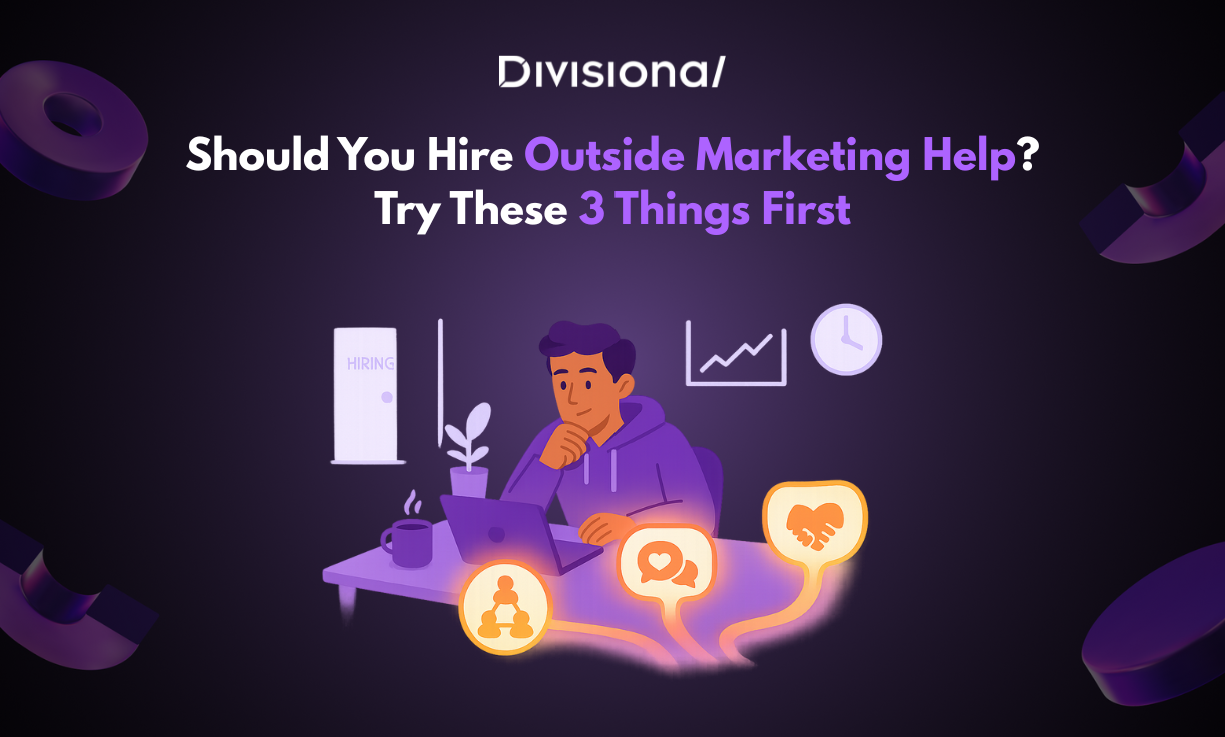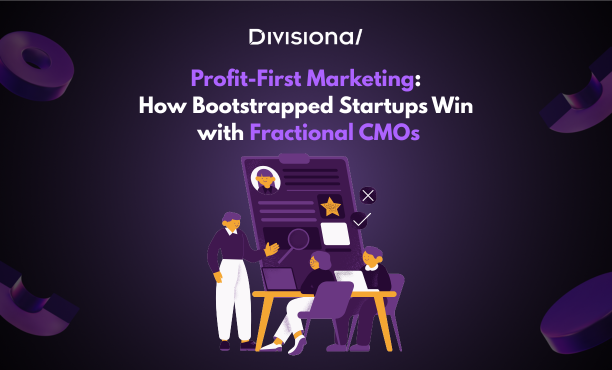.png)
Growth
Sep 19
Why “full-time only” is a recipe for failure
In this era of the Great Resignation, recruiting and retaining the right talent is hard. Period.
And it’s even harder for start-ups and small businesses, who are just getting their feet off the ground.
Startups want incredible talent, but often lack the resources to pay for the top 1% talent. Additionally, it’s also tough for their bottom-line to support having highly qualified and experienced folks on the team—especially when looking to get someone at the leadership level.
This problem becomes even more prominent when startup founders are looking for growth hires. The average compensation from later stage companies vs an early stage startup is drastically different for growth hires. It’s near impossible for new companies to compete with the salaries and benefits being offered by established ones, so finding growth talent becomes exponentially hard for startups.
Plus, the more specific you get with your requirements, the smaller your head of growth talent pool becomes. And even if you do find someone who exactly fits the bill, chances are, they are not looking for a new full-time position right now.
The chicken-or-egg problem
Here’s the thing: That top 1% talent you’re looking to recruit to unlock new levels of growth at your startup? They likely already have a job they are passionate about, and are never actively looking for a role. The best performers always have something lined up through referrals and ongoing communication within their network.
Since they are not desperately looking for their next role, they take their own sweet time to review any offers that come their way. This intense scrutiny is not just limited to type of work or compensation. It also includes checking for a strong cultural fit, alignment with the mission of the company, the employer brand, and other factors that can only be assessed through interactions with other long-term employees working at the company.
To create your employer brand and build an employee network to talk about your work culture and company ethics, you need employees. To get new employees, you need a trustworthy team of employees who recommend your company to potential hires. And on and on it goes—this chicken-and-egg situation means you are back to square one in your recruitment efforts.
To put this into context, let’s look at the story of Eva Tang, who leads marketing at Practice, an all-in-one business backend for solopreneurs. She was approached to work for the company by her friend, who happened to be friends with Julien, the Founder of Practice. Sharing her experience of how she joined Practice, she says, “I was recruited to Practice from my previous role at Precision Nutrition by a mutual friend. I said yes to taking the call because of the friend, otherwise I would have likely said no because I wasn’t actively looking at the time. Then he told me that it was Julien and I was like, oh yeah, I know that guy, and have used his product before. I was more willing to take the call and learn more about the opportunity because it came to me warmed vs. a random recruiter on LinkedIn”
Timing is everything
We’re not saying start-ups should never hire full-time employees.
It’s all about getting the timing right. Founders create financial overhead when they hire full-time employees very early on instead of trying to stay lean and agile.
That’s because founders typically don’t treat growth like fundraising—they hire for growth when they need growth. Instead of thinking 3-6 months ahead and hiring for future scaling, most founders hire employees only when they see an immediate need for the role.
Therefore, the talent pool that you’re digging into at that moment is limited; the ‘perfect candidate’, like the perfect prospect, may not be ready to commit at that very moment. By restricting your hiring timeline, you also restrict your talent pool to only include people who are actively looking for a job, unhappy with their current role, or unemployed.
.png)
Startups who are dead set on hiring full-time people for positions that need to be filled urgently miss out on the best growth marketers and harm their growth prospects. That’s because, though talented growth leaders are always open to new opportunities, they are likely discouraged once they find out it’s a full-time role you need to fill right away.
Not committing to full-time team members provides flexibility to founders—and we all know how essential flexibility is at early-stage start-ups. It gives founders the ability to test the waters and reprioritize resources till they find a perfect match for the business. So does that mean freelance or contract employment is the way to go for your company?
You think getting freelance talent is the right choice for you? Think again
Let’s dig into the freelancer model a little bit and talk about what happens when founders go to the other extreme—and hire the first freelancer or contractor they come across, thinking they can always find someone else later on.
In our experience, hiring the wrong freelancer or contractor can set your startup back in more ways than one. First of all, if there is nobody on your internal team to communicate clearly with the freelancer, align on deliverables and directions, and set goals, you’re basically setting them—and yourself—up for failure. Secondly, if you don’t like their work and go with someone else mid-way through the campaign, the new growth consultant who comes in is just left putting out dumpster fires.
All this predominantly happens because freelancers are not fully embedded in your team or invested in the success of your business. They are working on isolated projects, most likely in siloes, without having the full context about your company goals.
Another issue with directly hiring freelancer growth specialists is there is nobody on your team to manage them, they report to you. You need to give them clear directives and fix any issues, and a lot of times you won’t know what the issues are, since you’re not a marketer yourself.
First we pointed out issues in hiring full-time employees and now we discussed the pitfalls of going down the freelance marketer route—so what’s the right answer here? Glad you asked, because this is the perfect time to talk about the fractional employment model.
Fractional employment model: The best of both worlds
“Fractional hiring” is a type of hiring practice in which an employee works for just “a fraction” of the time of a full-time employee. This model enables early stage start-up founders to work with the top performers, without investing in a rigorous hiring process, or worrying about making the perfect choice.
At the same time, fractional employees are not detached from the business as freelancers are—because unlike the freelance model, fractional hiring is not project-based. Fractional hires are embedded within the company, have regular conversations with the founders, are up-to-speed on goals of the business, and are invested in the success of the start-up. They also solve the problem you run into with getting just freelancers on board—the problem of having nobody to manage the freelancer talent. Sounds silly to hire someone fractional to manage others, but it’s a necessity at the early stage of any business.
Fractional hires have an on-going relationship with the company and are personally committed to the success of all campaigns. It’s the best of both worlds—you get the level of investment and passion you get from full-time employees and you get the flexibility of freelancers.
If you need help finding your next fractional marketer, Divisional can help. We offer a flexible model where you can do a trial run with a Head of Growth, make progress, and convert to full-time only if and when there’s a mutual fit.


